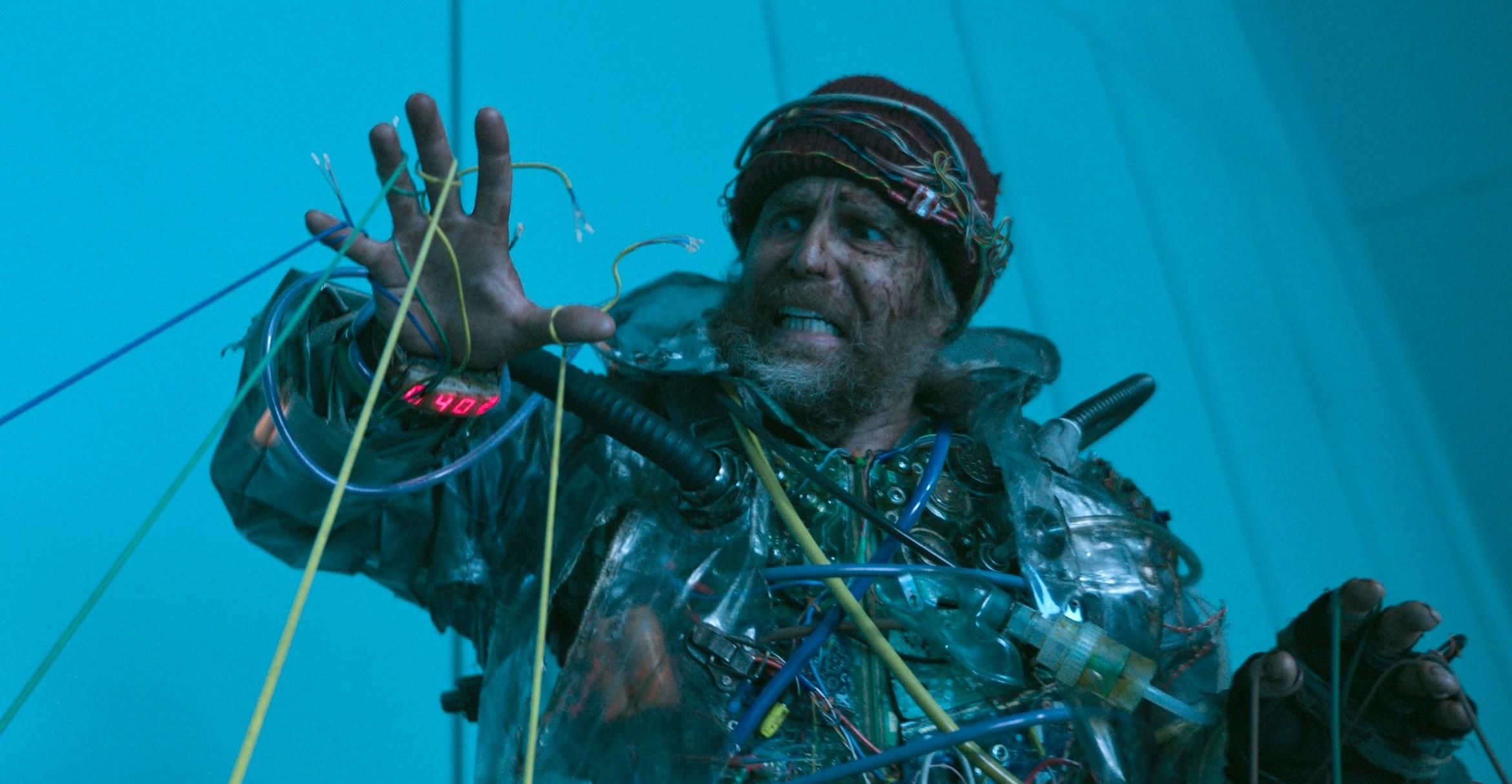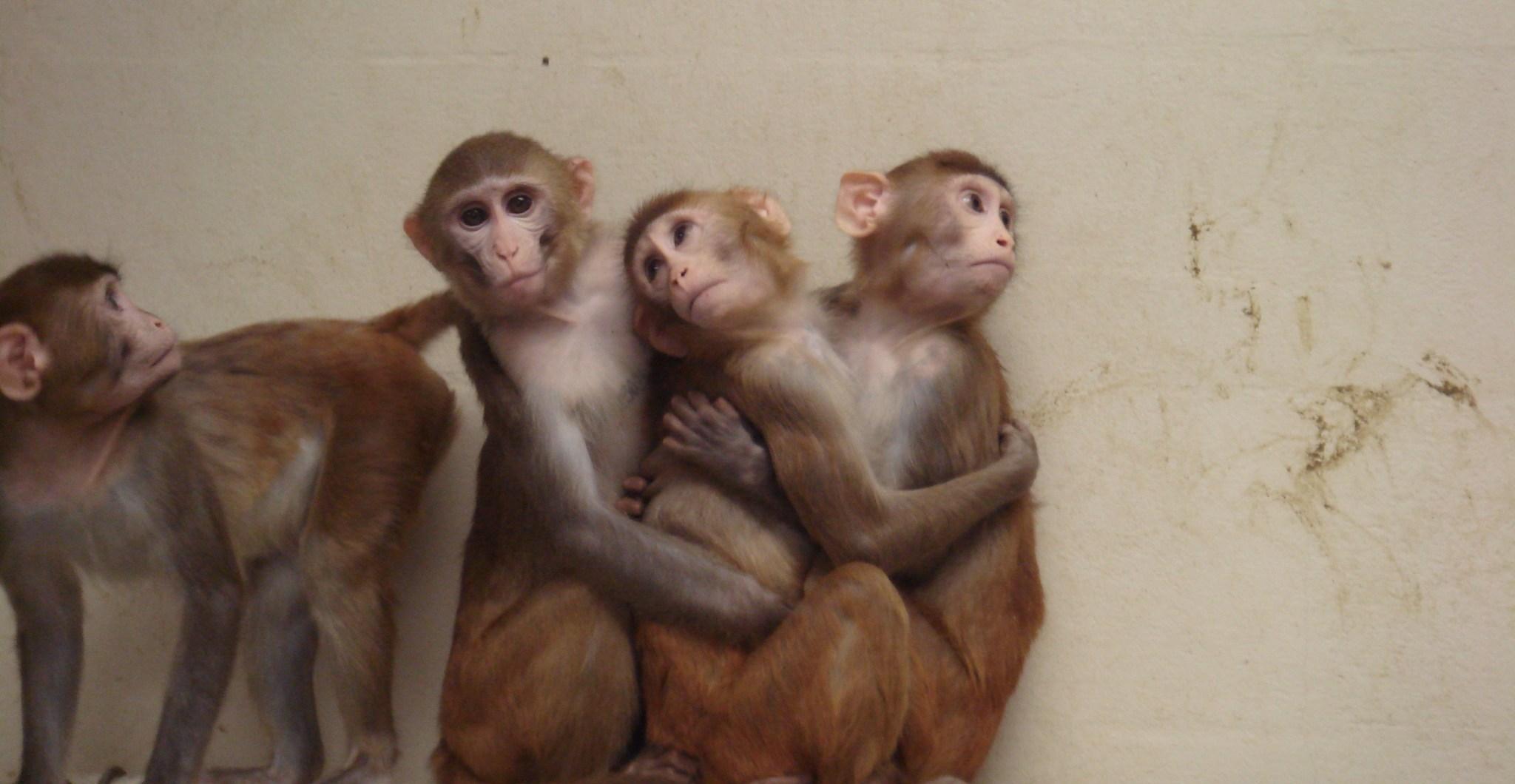

Editor’s note, October 23, 10:30 am: After the first round of voting in Argentina’s presidential election Sunday, Javier Milei will head to a runoff next month against left-wing candidate Sergio Massa. Vox’s original story on Milei, published October 21, is below.
Hernán Stuchi, a 29-year-old food delivery driver in greater Buenos Aires, grew up as a left-wing activist. During this weekend’s presidential election in Argentina, he will make a starkly different choice, and back Javier Milei, a far-right libertarian trumpeting socially conservative culture war issues and explosive proposals to reshape Argentine society.
“It was a kind of innocence,” he said of his previous support for left-wing leaders. “It’s not like us poor people ever stopped being poor.”
At the polls on Sunday, Stuchi will be far from alone.
Milei shocked the country when he defeated Argentina’s two main political forces in primary elections in August. Now, he looks poised to win the most votes over the weekend (though he may be forced into a runoff). A main fount of that support is, surprisingly, young people — and young men in particular.
Polls indicate almost 50 percent of voters 29 and younger back Milei, the wild-haired outsider and self-described “anarcho-capitalist” who inveighs against traditional politicians, branding them as members of a “caste” that must be done away with. (His campaign slogan, “que se vayan todos,” or “get rid of them all,” carries echoes of the Trumpian “drain the swamp.”) A win by Milei’s ascendant campaign in Argentina would serve as yet another indicator of the far right’s rise across the Americas and around the world. But young voters’ support sets Milei apart from the far-right stars he is often compared with, including Trump and Brazil’s Jair Bolsonaro, both of whom were shut out by young voters in their recent reelection bids.
With over 100 percent inflation crushing Argentine pocketbooks, Milei’s proposed solution is a radical plan to abolish the central bank and dollarize the economy by replacing the Argentine peso with the US dollar — a move untested by countries of Argentina’s scale. He has voiced support for other extreme positions, including liberalizing gun ownership and individuals’ freedom to sell their organs. He denies human-caused climate change and opposes abortion. At rallies, he can often be seen wielding a chainsaw, symbolizing his plan to slash public spending and unravel Argentina’s generous safety nets. In Milei’s view, the state should largely limit itself to homeland security: To that end, he has pledged to axe the ministries of education; environment; and women, gender, and diversity, among others.
That Milei’s platform has seduced the likes of former Fox News firebrand Tucker Carlson isn’t surprising. But Argentina’s youth, in contrast, have traditionally not been associated with right-wing forces. For much of this century, the bulk of their support has gone to the left-wing Peronist coalition, a dominant electoral force in Argentina. As recently as 2019, when the last presidential election took place, young voters were seen as an important group in favor of the left-wing candidate and eventual winner. In the 1970s and ’80s, students and young people played a storied role in the opposition to the ruling military junta. (Both Milei and his controversial pick for vice president, who has family ties to the military, have downplayed the dictatorship’s track record of human rights abuses.) In that historical context, young voters’ current pull toward Milei represents something of a paradigm shift.
Experts say there are many reasons for that shift, but chief among them is the pain of a prolonged and worsening economic crisis, which has put many in the mood for a sharp turn away from politics-as-usual. It’s also a reactionary impulse: There is a strong backlash against pandemic-era restrictions, which helped popularize Milei’s anti-establishment rhetoric, and a spate of recent progressive wins in Argentina, including a momentous bill that legalized abortion in 2020.
What started out as a youth movement powering Milei’s campaign has now widened to include groups of all ages, all across the country — Stuchi called it a process of “intergenerational contagion” with people like him working to sway over older relatives. That expanding appeal has put Milei on the precipice of power.
In pursuit of that power, he has been accused of fomenting violence and deepening the socioeconomic crisis he says he wants to solve. His rhetoric, according to Argentine officials from the current ruling party, encouraged looting across the south of the country in August.
A win for Milei would plunge Argentina into uncertainty at best, sheer dysfunction at worst.
The politics of 100 percent inflation, explained
No matter the economic indicator you consult, the takeaway is one and the same: Things in Argentina are dire. Annual inflation hit 138 percent in September, one of the world’s highest rates. Just over 40 percent of Argentines currently live in poverty, up from 25 percent in 2017. The central bank is almost out of reserves, raising the risk of a potential currency devaluation and yet another default. No one is unscathed by the economic malaise, but young people face higher unemployment.
:no_upscale()/cdn.vox-cdn.com/uploads/chorus_asset/file/25018933/1663299522.jpg)
“You go [buy something] and you find a price. You go back a couple of days later and it’s changed to something else ... It’s like, every day, things get more difficult,” said Carolina Ramos, 19, a college student in the heartland city of Córdoba who will vote for Milei. “Inflation is so out of control that you lose the notion of how much things actually cost.”
For many in Ramos’s generation, the only Argentina they’ve known is one in a state of crisis. Since 2012, the Argentine economy has been in recession more often than not, and the International Monetary Fund has forecasted yet another economic contraction for 2023.
“I only have memories of Argentina in decay,” said Adriel Segura, a 19-year-old based in Buenos Aires. “So, you look around and you associate all the political parties and all the movements that were in power during that time ... to a decaying country. And you desperately search for other options.”
Valeria Brusco is a member of the Red de Politólogas, a group of women political scientists. She says the traditional center-left and center-right candidates in this election are so inexorably linked to the economic mismanagement at the origin of the ongoing crisis that it’s as though they were “invisible” to many young voters, leaving only Milei as a viable option.
“The more anger and rage a voter has, the more probable it is that they’ll vote for Milei,” said Pablo Vommaro, a University of Buenos Aires sociologist.
Milei’s signature proposal to curb inflation — dollarization — is viewed by experts as likely unworkable, in part because of how few greenbacks are left in the central bank’s coffers. Critics say it could wind up depreciating the peso even further and inducing more pain. In the 1990s, a dollar-peso peg proved popular in the short term, but it led to a crushing devaluation, skyrocketing poverty, and bloody riots. According to Vommaro, young Milei voters are nevertheless willing to “press the red button and let everything blow up.”
“Their thinking is that it’s better for everything to explode than to keep living through this agony with the same leaders as always.”
Some analysts say young voters are under the naïve impression Milei will be able to seamlessly turn around Argentina’s troubles. But the young people I spoke with have an almost nihilistic understanding that betting on the libertarian could end badly.
“I know that those who are in power now and who were in power before will screw me over, that they’ll continue to steal,” said 24-year-old Buenos Aires resident Alan Monte Bello, referencing high-profile corruption cases. “They won’t do a good job. With Javier, I at least have the possibility that he won’t be like that. And maybe it will end up being a failure and things will be worse than now. But at least the benefit of the doubt is there.”
A radicalizing pandemic
Milei drastically raised his public profile during the pandemic, when he joined anti-confinement protests organized by young people and made frequent TV appearances, arguing that the toll of the government’s containment measures would wind up exceeding the toll of Covid itself. There was a receptive audience for those views, in part because of the lockdowns imposed by Argentina in 2020 that lasted until November of that year. That’s nowhere near the intensity of China’s zero-Covid policy, which only opened up restrictions earlier this year. But young people’s livelihoods were disproportionately compromised. In Argentina, almost 45 percent of all workers in the informal economy are between ages 18 and 29. Working remotely isn’t an option, so staying home means forgoing a paycheck.
:no_upscale()/cdn.vox-cdn.com/uploads/chorus_asset/file/25019387/1727875796.jpg)
“The people who wanted to [flout restrictions], they had Milei as their representative,” Brusco said. “He became their hero.”
In parallel, a right-wing social media ecosystem was gathering strength, with a cadre of Milei-supporting influencers growing significant audiences on TikTok and YouTube. Clips of Milei’s TV appearances found a second life on those platforms, and they helped give the firebrand a social reach unrivaled by his competition in this election. On TikTok, Milei’s official account, helmed by a 22-year-old staffer, has garnered nearly four times as many followers as those of the center-left and center-right candidates combined.
“[Milei’s] performance on social media is very strong ... I’ve interviewed lots of young people who told me that, during the pandemic, they were at home, they didn’t know what to do, and they just started watching videos of Milei,” said Ezequiel Saferstein, a sociologist and researcher at the Universidad Nacional de San Martín.
Backlash against historic abortion laws and other progressive wins
In 2021, a landmark law legalizing abortion went into effect. It capped a series of legislative advances — around issues such as gender identity, gender equality, sexual education, and gay marriage — that put Argentina on the progressive vanguard of Latin America. Since then, the government has removed barriers to contraception and established a trans labor quota in the public sector. The current president has publicly used gender-neutral Spanish — a lightning rod of controversy across the Americas.
Some see Milei’s rise as aided by a backlash against those changes. That may explain the gender imbalance in his youth support, which is a majority male phenomenon. (“I’m not going to apologize for having a penis,” Milei once said in an interview.)
In addition to opposing abortion rights, Milei has denied the existence of the gender wage gap and dodged a question on a debate stage about gender violence. Those positions fueled large feminist demonstrations across the country late last month, with participants reporting fear that their rights would be in jeopardy under a Milei presidency.
Saferstein told me that right-wing affiliation has carried a degree of stigma for much of the last 40 years because of the long shadows cast by the military dictatorship. But the institutionalization of progressive policies has changed the way the right is perceived.
“Historically, it’s the left that has been associated with being revolutionary ... [but] the left has in a way become the status quo,” he said. “The conservative reaction that we have seen has positioned itself as anti-system ... Milei has made a cult out of that anti-system rebelliousness.”
Other young voters are less moved by the culture wars and might even disagree with many of Milei’s controversial beliefs. But amid the severe economic crisis, their top priority is Milei’s proposal to stabilize the country’s economy. Most of the young people I spoke with in Argentina, for instance, say they denounce Milei’s assertion that climate change is a “socialist lie.” Their votes, however, are not based on that.
“It’s not that the people who vote for Milei are saying, ‘Screw the climate.’ ... It’s just that I need to get some money in my pocket first. Then I can worry about the climate,” Stuchi said. “I think the only people that can care about climate change are people who have full fridges. ... And it’s like that with every controversial policy item Milei might have, from the sale of organs to abortion.”
Still, Brusco says electing a president who represents a brand of “angry masculinity” is a real worry. Milei might find it significantly more difficult once in office to implement his radical economic reforms than, for instance, to undermine the implementation of the abortion law.
“Honestly, if we weren’t living through it, this [election] would seem like something out of a movie,” Brusco said.
What’s next?
Despite its moribund economy, Argentina has enjoyed a relatively stable political system in recent years. A Milei win could change that, with analysts predicting a high risk of social upheaval. Among his first priorities would be to shrink the footprint of the Argentine state, drastically reining in spending and setting up an austerity regime to try to get the country’s books in order. Such moves would disproportionately affect the working class and be almost guaranteed to mobilize powerful unions and social movements, paralyzing cities nationwide.
:no_upscale()/cdn.vox-cdn.com/uploads/chorus_asset/file/25018944/1626444447.jpg)
But it’s unclear whether Milei would even be able to enact reforms in the first place. Functionally a one-man party, the libertarian would have scant allies in the legislature and none in provincial governorships across the country — an unprecedented lack of support for an Argentine president. Coalition building might prove complicated given the Milei camp’s lack of governing experience. Resorting to decrees and referendums would be largely off-limits.
Those governability challenges could make it difficult for Milei to inspire confidence in the investor class — an ironic twist given his market absolutism. After Milei came out on top during preliminary elections in August, the country’s financial markets plummeted, accelerating the peso’s decline against the dollar.
“His government will face so many obstacles and I’m afraid there will be lootings, I’m afraid there will be revolutionaries in the streets,” said Natalia Fernandez, a lawyer in Córdoba. “That’s what I’m most worried about [if Milei wins]: the potential for unrest.”
If no candidate clears one of two bars Sunday (either receiving more than 45 percent of the vote, or notching 40 percent while also finishing more than 10 points ahead of the closest candidate), the top two contenders will advance to a runoff on November 19.
“Milei won’t have an easy time governing,” Vommaro said. “All those problems young people have, they will get worse ... and that is going to generate more anger, without a doubt.”
X briefly hit by ‘international outages’: monitors
- 6 گھنٹے قبل
Blast near Bannu police station leaves two dead, 17 wounded
- 12 گھنٹے قبل
PMD forecasts rain wind with thunderstorm in Balochistan, KP
- 7 گھنٹے قبل
England survive Italy scare to reach T20 World Cup Super Eights
- 6 گھنٹے قبل

High voltage clash: India defeat pakistan by 61 Runs, qualify for Super Eight
- ایک دن قبل

Westminster Int'l School Bahria Campus concludes Phoenix Fest & Mavericks 2026 in grand style
- 10 گھنٹے قبل

Good Luck, Have Fun, Don’t Die is a rollicking parable about this moment in tech
- ایک دن قبل
FinMin claims losses of SOEs plummet by around Rs74b in three years
- 12 گھنٹے قبل
Multan hosts All Pakistan Long Range Shooting Championship
- 11 گھنٹے قبل

PM invites Austrian businesses to expand investments in Pakistan
- 8 گھنٹے قبل
Field Marshal Asim Munir vows to deepen Pak-UAE partnership
- 11 گھنٹے قبل

Gold prices plunge in Pakistan, global markets
- 11 گھنٹے قبل










